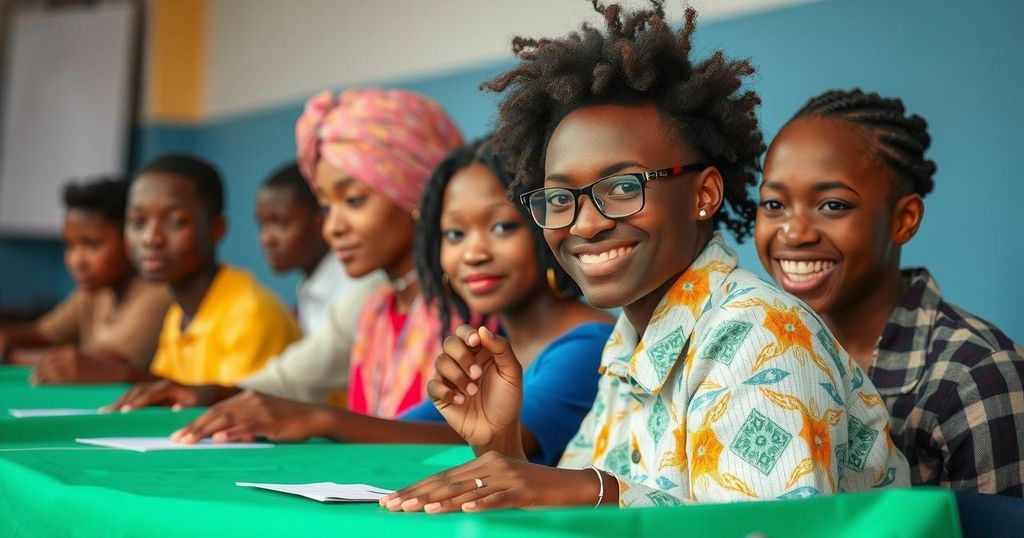Young Ghanaians View Presidential Elections as a Chance for Change Amid Economic Crisis
Ahead of the presidential election in Ghana, young voters are seeking change due to ongoing economic hardships, viewing their votes as a critical opportunity. With 12 candidates in the race, the competition primarily lies between Vice President Bawumia and former President Mahama. Both candidates are focused on addressing the economic crisis, yet concerns remain about the adequacy of their promises and the fairness of the electoral process.
As Ghana prepares for its upcoming presidential elections, the youth view their vote as a potential escape from the pervasive economic hardships that have plagued the nation. Among the first-time voters is Joseph Antwi, who expresses clear dissatisfaction with the ruling government and its failure to uphold electoral promises. Although there are 12 candidates running, the contest is widely perceived as a two-horse race between Vice President Mahamudu Bawumia and former President John Mahama, with the youth expressing skepticism about their choices. Both candidates are competing vigorously, addressing the nation’s economic malaise while rallying significant public support.
In his campaign, Vice President Bawumia asserts a commitment to continuity in economic stabilization efforts, promising to build upon previous governmental initiatives. Conversely, former President Mahama seeks to instigate a comprehensive reform entitled “reset,” addressing various sectors from governance to health care. Amid this politically charged atmosphere, the impacts of illegal gold mining and widespread unemployment further complicate the election dynamics, indicating that economic stability is at the forefront of voters’ concerns. The electoral commission’s integrity remains under scrutiny, with allegations emerging regarding potential bias, although the commission has assured its commitment to transparent processes and credible elections. The upcoming election represents a pivotal opportunity for the youth of Ghana, who remain hopeful yet apprehensive about the prospects of real change.
In Ghana, economic challenges such as high inflation, public debt, and a weakened local currency have intensified the hardships faced by many citizens, particularly young people. The economic crisis has deepened since the current government assumed power, leading to heightened discontent. With the presidential elections looming, many young voters anticipate that their ballots could catalyze significant change, allowing them to express their frustrations with the current administration. The political landscape is predominantly shaped by two main parties, with both candidates attempting to address pressing economic issues while gaining public support. As young Ghanaians prepare to vote, their choices seem limited and the stakes are higher than ever.
The presidential elections in Ghana herald a critical moment for young voters, who see their participation as a chance to effect change amidst an ongoing economic crisis. The main candidates, Mahamudu Bawumia and John Mahama, are framing their campaigns around economic recovery and reform. However, concerns about the legitimacy of the electoral process and the ability of either candidate to deliver meaningful solutions remain prominent. For many young Ghanaians, this election is not just about choosing a leader; it is an opportunity to voice their demands for a better future and improved living conditions.
Original Source: apnews.com




Post Comment